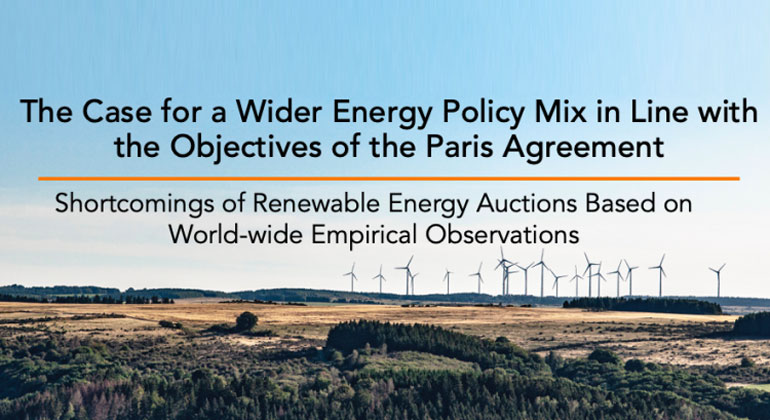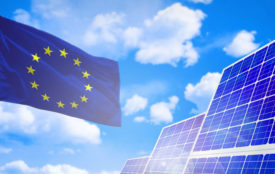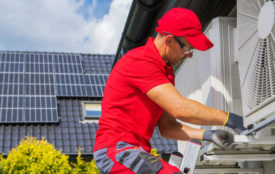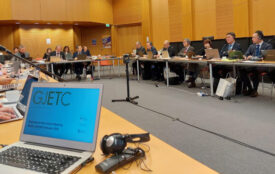Current policy frameworks hinder expansion of renewable energies worldwide and undermine climate targets
While governments around the world spend billions of dollars to rebuild economies in times of the COVID-19 pandemic, they fail to steer investments into the urgently needed energy transition. Not only are the deployment targets across the globe far too low to deliver the exponential growth of renewables required and therewith meet the objectives of the Paris Agreement, but also the increasing use of renewable energy auctions creates substantial additional barriers to achieving exponential growth. The latter is the result of a new study commissioned by the energy policy think tanks Energy Watch Group, World Future Council/Global Renewables Congress and Haleakala Stiftung. In particular, this finding applies to the market segments of small and medium sized renewable energy projects, which can significantly enlarge total deployment capacities and are also crucial for local employment and regional development.
The report, which based its extensive analysis on empirical observations in more than 20 countries worldwide, concludes that a wider policy mix is urgently required to allow for an aggressive expansion of renewable energies. The authors recommend adjusting the use of individual policy instruments depending on the market segment:
- Continued use of auctions for large-scale projects
- Use of feed-in tariffs or feed-in premiums for small and medium sized projects
- Use of self-consumption policies for very small-scale projects
Six key shortcomings of auction-centered energy policy frameworks:
- Auctions fail to provide fair access to everyone and deter small-scale actors.
- Auctions do not promote a variety of project sizes, as larger projects are typically successful in outbidding smaller ones, frequently excluding small and medium-size projects.
- Auctions foster market concentration by favouring financially strong and large actors.
- Auctions impair important conditions that support the acceptance of new projects.
- Auctions often suffer from under-subscription, project cancellations or delays, hampering the timely achievement of renewable energy expansion targets.
- Auctions do not guarantee low remuneration levels, nor have they caused the recent cost reductions of renewables.
“The findings of the report clearly show that auctions are a crucial factor hindering the exponential growth of renewables. This alarming trend jeopardizes international governments’ compliance with the climate targets agreed in Paris, as the switch to low-cost and technologically mature renewable technologies is key to drive emissions down to zero.” says EWG’s president Hans-Josef Fell. “In many parts of the world, renewables are now the cheapest source of energy generation. At the same time, the socio-economic benefits of renewables are not sufficiently reaped and investments into green energy are stagnating.”
New data published by the International Renewable Energy Agency (IRENA) confirm that investments in renewable energy have been declining since 2017, a trend that is likely to continue throughout 2020/2021 as a result of the COVID-19 pandemic. “Auctions have become a popular instrument for the deployment of renewables while fulfilling other development goals. IRENA has extensively studied the strengths and weaknesses of auctions and continues to analyze innovative designs that can achieve the multiple objectives of procuring renewable power at the lowest price, maximizing the socio-economic benefits, ensuring project timely completion, and supporting the integration of higher shares of variable renewable energy into the system. The findings of this new study provide valuable insights for further analyzing the effectiveness of policy designs for these objectives.” comments Francesco La Camera, Director-General of the International Renewable Energy Agency (IRENA).
Anna Leidreiter, Project Lead Global Renewables Congress at the WFC, emphasizes: “Renewable energies have to provide the lion’s share of electricity, heating, cooling and transport-related needs in the next decade. To meet this ambitious goal, everyone needs to be part of this transition. We need political frameworks that open up the energy market for new players. This study shows that auctions alone cannot serve this purpose.”
”If the EU really plans to put the Paris climate targets into practice, the new Renewable Energy Directive must give EU Member States full flexibility to choose their own policy instruments – in line with the energy sovereignty enshrined in the Lisbon Treaty. To this end, scrutinizing state aid for renewable energy must be restricted.”, states co-author Dörte Fouquet of Becker Büttner Held (BBH).
Mark Z. Jacobson, one of the scientific voices behind the Green New Deal, observes that in the USA, “the expansion of renewable energy at the utility level has worked quite well with the spread of Renewable Portfolio Standards. But we must also strengthen community-based, decentralized as well as medium-sized investments in clean, renewable energy in order to achieve the objectives of the upcoming Biden administration, namely a completely emission-free power sector by 2035. To this end, the study provides valuable science-based policy recommendations.“
Source
Energy Watch Group | World Future Council / Global Renewables Congress | Haleakala Stiftung 2020








